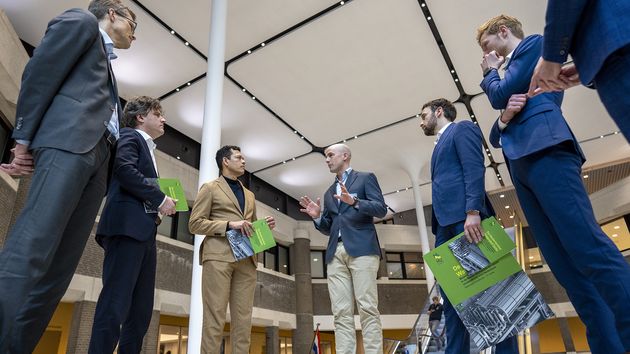
The consortium De Nederlandse Waterstof Delta (The Dutch Hydrogen Delta) has proposed a plan to MPs Bontenbal (CDA), Boucke (D66), and Erkens (VVD) to start the electrolyser manufacturing industry in the Netherlands and thus accelerate the hydrogen economy.
The consortium De Nederlandse Waterstof Delta is consisted of Battolyser Systems, Port of Rotterdam Authority, Platform Zero, Didak, Agfa Gevaert, Madern International, VSPARTICLE, Demcon, Delft University of Technology, Techniek College Rotterdam, Hogeschool Rotterdam and InnovationQuarter.
The plan was developed by the aforementioned 12 group partners, and €80 million (US$85 million) in funding has been applied for from the National Growth Fund for its implementation.
The consortium said its strategy guarantees that the Netherlands gains autonomy and begins manufacturing the plants required to produce green hydrogen.
According to the statement, De Nederlandse Waterstof Delta will deliver 1 gigawatt of plants per year beginning in 2026. This enables it to deliver half of the plants required by the Netherlands to achieve its interim climate goals by 2030. The plants are powered by the Battolyser, a one-of-a-kind Netherlands hydrogen generator. This TU Delft-developed device can hold power and generate green hydrogen from sustainable energy. When there is plenty of wind and solar power available, the system can create hydrogen, and when there is a lack of wind and solar power, it can give electricity to the grid.
By 2026, De Nederlandse Waterstof Delta hopes to have a 1 GW annual manufacturing capability of Battolysers in the Merwe-Vierhaven region (M4H).
The manufacturing industry is the missing link in the Dutch hydrogen economy, according to the Port of Rotterdam Authority, which noted that factories making green hydrogen are being built on the Maasvlakte, but the associated equipment is not currently made in the Netherlands.








